Sacred Chickens
Menu
SACRED CHICKENS
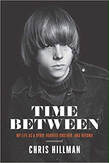 Time Between by Chris Hillman by Roy Peak Chris Hillman, as a shy kid just learning to play bass, helped to form the California band the Byrds, which by itself, would be enough to land him a spot in the history books. But Hillman wasn't content to stop there. He also was a guiding force in the Flying Burrito Brothers, the Desert Rose Band, and Manassas. For over half a century Hillman worked with such musical luminaries as Roger McGuinn, Stephen Stills, Bernie Leadon, David Crosby, J.D. Souther, Tom Petty, and Gram Parsons. In the eighties he founded the Desert Rose Band, which had a multitude of hits on the country charts.
4 Comments
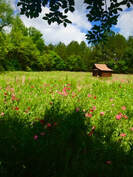 3 Poems Ahmad Al-Khatat In The Garden of Your Heart
Plant me in the garden of your heart Water me with your emotional tears Until I blossom in your warm season Just don't pick the flowers around me. Let my seeds become your healthy sustenance, allow me to be the fibres on the abandoned empty dish of the holiday, thus I would feed you happily. Engrave your name on my chest of the tree, and hold my green branches Maybe you could educate me how to dance, before autumn, split us apart. Write your dreams on the colourful leaves You live and die once and I live and die more than onetime, be glad and I will be the tree to expand my roots to reside with your breathe. 10/12/2020 Bleeding Heart Poet © 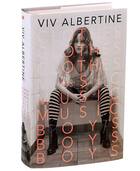 Clothes, Clothes, Clothes, Music, Music, Music, Boys, Boys, Boys Author, Viv Albertine by Roy Peak Reading Viv Albertine's biography took me to another time and place more so than any other biography I've ever read.
I've read multiple books on the London punk scene, (England's Dreaming by Jon Savage was informative but a little dry, John Lydon's Rotten: No Irish, No Blacks, No Dogs was great, but a little self-centered.) but Albertine's was the first one that really made me feel as if I had been dropped right into the midst of what was truly an ever-evolving and rather incestuous happening. Albertine gives true insight into those who populated the music scene without sounding like a name dropper. She was friends with (or went to school with, or dated, or worked for, or played in bands with) some of the most important and influential characters in England at the time, and her memories of these people come off honestly, with no sense of malice. A for instance: Most tales of infamous Sid Vicious of the band the Sex Pistols make him seem like a cartoon character or a doom-laden extra in someone else's story. Albertine manages to turn him back into a real person—no small feat. They were friends, played in a band together, and Albertine paints a rather sympathetic portrait of the iconic rock star, painting a portrait of a person much different than you would think. 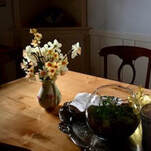 Plants of the Underworld by Jarad Johnson Whenever we think of the Underworld, especially in Greek Mythology, we think of a barren wasteland, devoid of any life. In reality, the Greeks really saw the Underworld, not as hell as the Christian tradition knows, but as a multifaceted world, one where souls travelled when they died. It was much more complex and three dimensional than the hell we know today, as there are actually five regions and five rivers that run through it. But, as a gardener, I of course paid attention to the plants. There are many plants that are associated with that realm, and I thought it might fun to go through some of them. Abandon all hope, ye who enter here. Or abandon your plants. I will gladly take them.
 Animal Tales of the Zombie Apocalypse by Roy Peak So last week was Peak Week and last week Music Editor Roy Peak took over the coop. And you might be sad because you think...dang! Peak Week is over.
But Time doesn't work that way around here! We have no respect for its strict boundaries and one-way time-flow nonsense. So here's an extension of Peak Week. We've bent time itself for your enjoyment. Animal Tales of the Zombie Apocalypse Lux From his perch on the branch of the big oak tree that stood near the pond, the big black crow could see that the buzzards were circling again. They were doing that more frequently, ever since the humans had all gotten sick, and started dying in the streets. The weird part is some of the dead humans got back up and kept on going, eating other humans or whatever unfortunate creatures that got too close to them. Weird. The crow knew better than to eat sick humans. That was a good way to get sick yourself, but the buzzards didn't care, and had been enjoying their feasts. Until they too started getting sick. Just yesterday he had seen four sick buzzards, no longer able to fly, attacking each other until there was nothing left but broken beaks and a lot of blood and feathers. So the old crow stayed away from the sick humans, hunted the occasional frog or mouse, ate from the cornfields to the east, and scavenged nuts that fell from the trees in the park. He was an old crow, all his hatchling siblings were long gone, scattered like leaves in the wind, so he spent most of his days alone—eating, flying, watching. He used to enjoy watching the humans. They did the most interesting things: Walk their dog companions in the park. Race their metal boxes around the city streets. Spend hours in their nests, staring at their talking bright-light boxes. Coddle some of the plants in their yards, while chopping and killing others. Some of the things the humans did made no sense to the crow, maybe that’s what made them interesting. 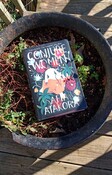 Conjure Women Author, Afia Atakora by Jarad Johnson “Freedom was a word with weights. It meant deciding to stay or go.”
First novels are, by and large, a toss up. Some authors are most known for their first novels. Some authors prefer not to talk about them. They can be revelatory or they can fall short of the expectations for that genre. After reading Conjure Women, I can definitively say that Afia Atakora should be proud of her first novel. 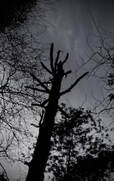 Shiverwood by Nick Dunkenstein Cain could feel his insides twitch the deeper he got into the winter abyss encompassing around him, the squelching under each foot seemed to echo against the naked trees that almost mocked him with their ability to stay still through the bitter chill, “I wish I stayed home.”
Looking behind him, he could see his little red car through the panorama of birch trees, mostly because it was the only colourful thing within miles. He sighed, his millionth sigh, and kept moving forward, “Damn, tires,” he mumbled. His roommate told him that he needed to look at replacing the doughnut he was riding on for weeks, “should’a listened…” he kicked what looked like a pile of snow, which turned out to be a branch rimed with hoarfrost. 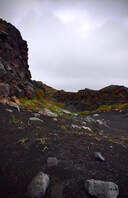 Two Roads Electioneering The Neighborhood Sixty-Five Gulls A Different Light by Paul Ilechko Two Roads
There is a high road and a low road that parallel the creek between them meandering apart until they close as one the high road made of dirt climbing rapid then dropping down and from such height has visibility at certain seasons of the low road through the yellow autumn or the sparsity of winter to where the low is pinned against the cliff beyond it rising such that steepness melts from it and dribbling back to pool and filter on the asphalt a road of Pennsylvania rotten a crumbling coverage of constant liquid curved and black against the earth as cutting its tracery through the hills it finds its termination point a village center pinned in place and anchored by terrain.  Leopard At the Door Author, Jennifer McVeigh by Jarad Johnson “Authority is not a substitute for the truth.”
As readers, I feel like we can get a little burnt out at times. I certainly have been burnt out on fiction lately. I’ve been preferring to read more information-based texts, usually on plants or some other nerdy garden topic. I began to feel like I was reading the same story over and over again, perhaps because I was buying the same type of books. My shelves are telling me that I need to branch out. I just felt tired and worn out on what seemed to be repetitive plot points and characters that didn’t resonate with me. Part of the problem is that I’m picky and I go through phases. I also have been steering away from depressing and/or darker things lately. The world is dark enough, and my emotional investment can only go so far. Sometimes when you finish a really good book, you feel exhausted. Its similar to physical exhaustion, or a hangover. Perhaps I should just throw myself into it, but I’d rather escape, and I’m tending to steer towards more comforting or light stories. It’s strange how things shift like that, isn’t it? 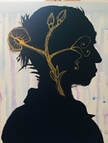 Once A Day by Lane Mochow Once A Day when I was little, we left the house once a day: the gas station on the corner for diet coke, the mall for making up stories about what the teenagers meant by their foreign lingo. the grocery store for bagels, black beans, burritos. the restaurant for filling long-gurgling stomachs egg rolls, dollar burgers, ice water with lemon. the greenway to name edible plants in case the economy collapsed and I a lone child without moccasins, turquoise, teepees (as i imagined my ancestors had) were left to collect watercress, pick the leaves from dandelions, dig up sassafras root with my nimble fingers. the bank to wear my nicest ankle length skirt to stand behind her in silence as mommy cashed her check stuffing the cash in her billfold as though her life depended on it (it did). i never noticed the knowing look in the cashier's eye, the wag of his buzz cut at our arrival, the wipe of her minimum wage saltwater, when mommy's beaded braids the ever-present rustling of a brooding hurricane came upon the horizon. mommy's rage would white knuckle grip their great black oaks at the trunk, plead into Jesus' dime per minute payphone they drown in a clawfoot of their own blood. "Say amen! Say amen! Say amen!" "Amen."  Bio: Lane Mochow is the author of the chapbook, "Ink." He won first place in the 2018 Tennessee Magazine Poet's Playground in the 19-22 category. He has contributed poetry reviews at Sacred Chickens. |

Click Photo above to buy ebook or paperback from Amazon.
Here's the link to Barnes and Noble Or order through your favorite independent bookstore! Categories
All
|
 RSS Feed
RSS Feed